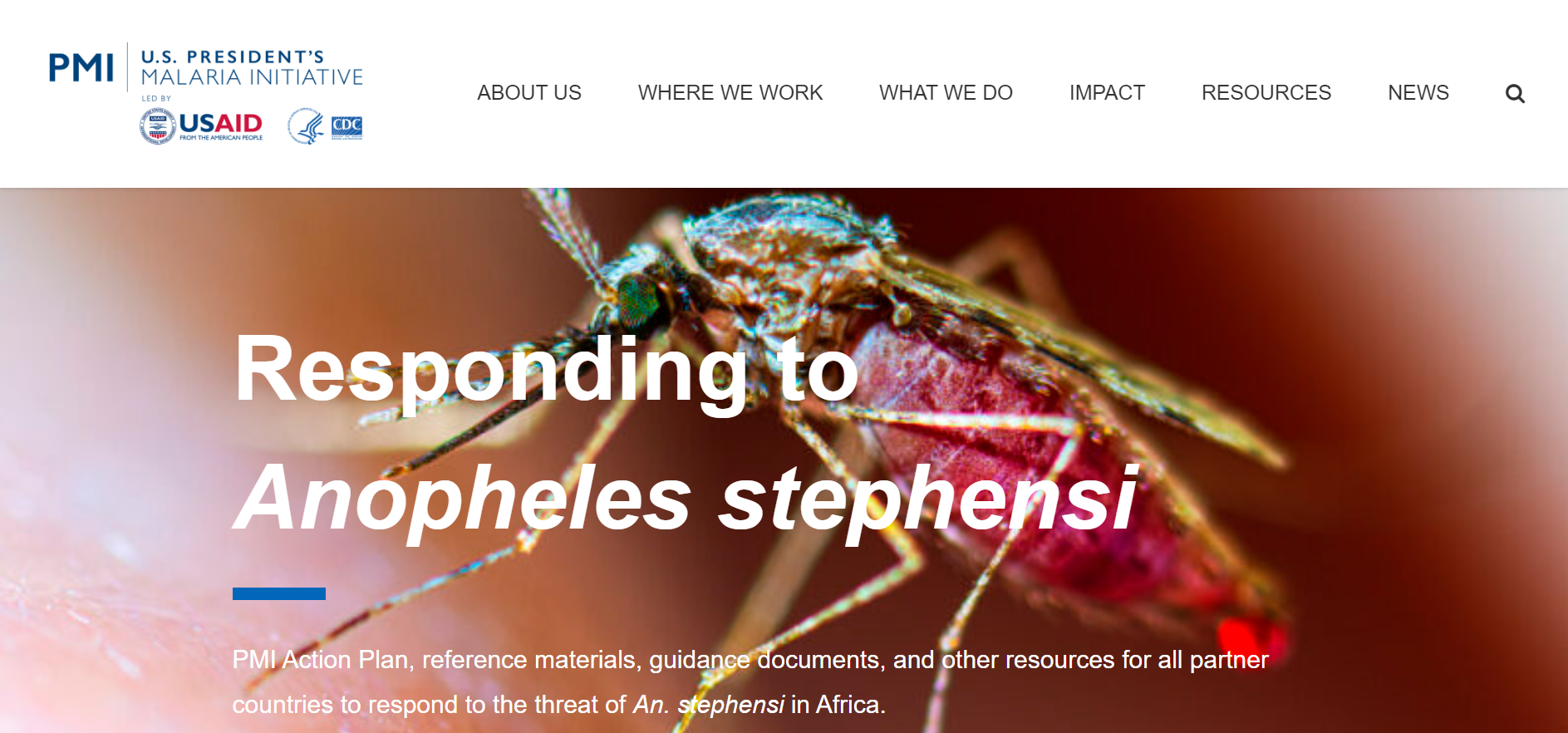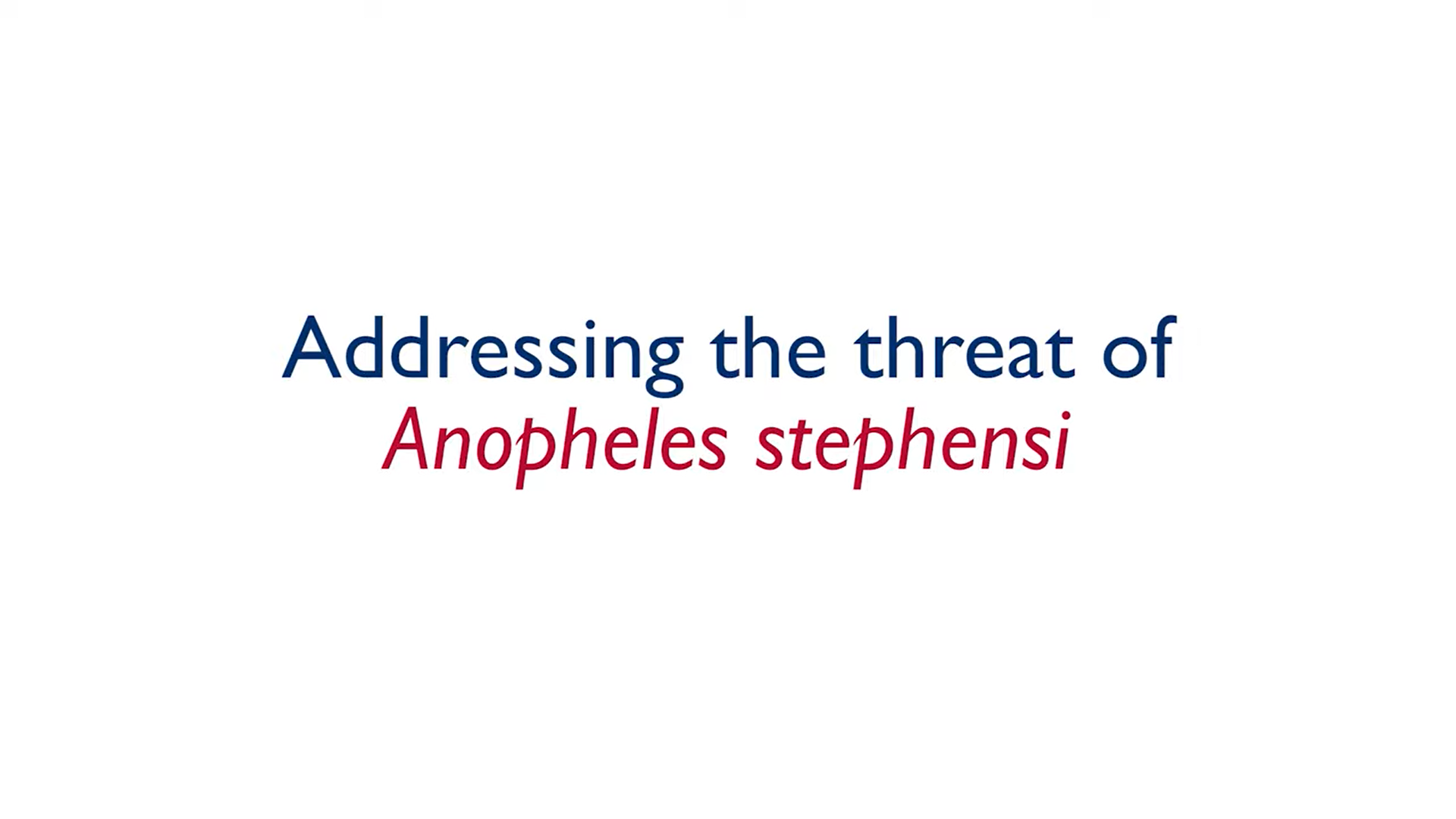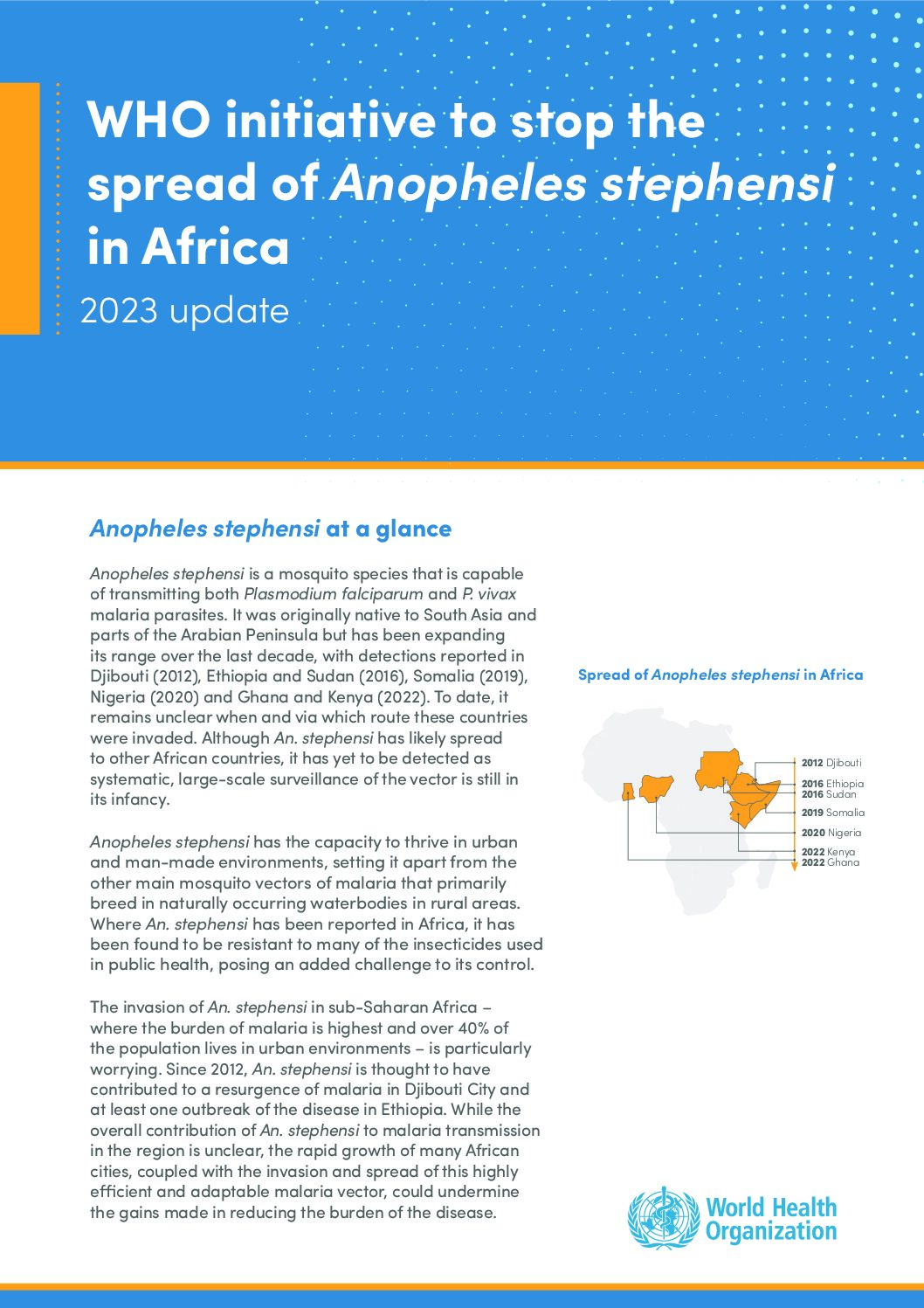PMI Anopheles stephensi resources
Published: 09/08/2023
Anopheles stephensi is an invasive malaria mosquito in Africa with a unique ecology allowing it to thrive in urban habitats as well as rural habitats and persist throughout dry seasons. This invasive vector threatens to alter the landscape of malaria from a predominantly rural disease to one that impacts both rural and urban populations. It is estimated that as this species continues to spread throughout the African continent, it could put an additional 126 million people in urban areas at risk of malaria. In 2011, Djibouti was successfully progressing toward malaria elimination; however, in 2012, An. stephensi was detected and since then malaria has increased 36-fold, with over 300,000 suspected cases in 2020, in a country of fewer than 1 million. Read the PMI Anopheles stephensi Fact Sheet.
PMI revised its policy around larval source management (LSM), and in countries where An. stephensi has been confirmed, LSM may be implemented as a vector control intervention. This provides opportunities for PMI partner countries to respond to An. stephensi quickly.
To support countries in making decisions about how best to address this biological threat, PMI’s An. stephensi Task Force, comprising of representatives from different technical areas and from affected countries, developed a living Action Plan document, which contains reference material, protocols, and proposed activities for decision making around An. stephensi and aligns with the WHO initiative to stop the spread of An. stephensi in Africa.
To support the global community in tracking the spread of An. stephensi, PMI partner countries are conducting enhanced surveillance for An. stephensi. We are working with our partners to investigate suspected specimens collected through routine surveillance in the hundreds of PMI supported entomological monitoring sites – and to report surveillance sites (both positive and negative for An. stephensi) to WHO to generate the data needed to track the spread of the species on the continent.
PMI has also supported the development of a cross-cutting social and behavior change (SBC) guidance document which can be used by partner countries once a response to An. stephensi has been identified. SBC activities should be incorporated within the response to promote the interventions and associated individual, household, and community level behaviors that support the uptake and maintenance of interventions to combat invasive An. stephensi.
Published: 09/08/2023

THEMES: Health Systems | Operational Research | Social Science | Surveillance | Urban Malaria | Vector Control


